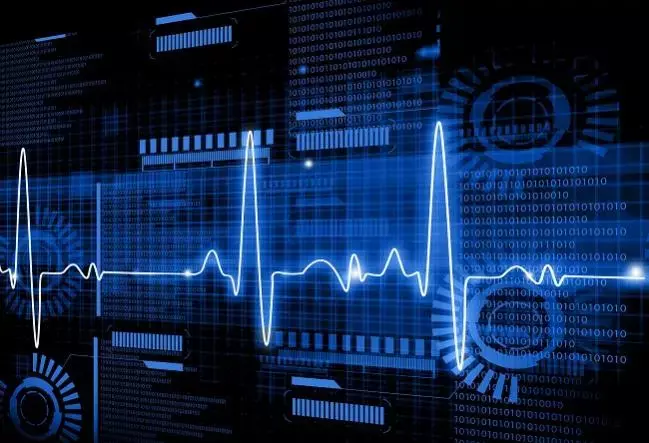- Home
- Medical news & Guidelines
- Anesthesiology
- Cardiology and CTVS
- Critical Care
- Dentistry
- Dermatology
- Diabetes and Endocrinology
- ENT
- Gastroenterology
- Medicine
- Nephrology
- Neurology
- Obstretics-Gynaecology
- Oncology
- Ophthalmology
- Orthopaedics
- Pediatrics-Neonatology
- Psychiatry
- Pulmonology
- Radiology
- Surgery
- Urology
- Laboratory Medicine
- Diet
- Nursing
- Paramedical
- Physiotherapy
- Health news
- Fact Check
- Bone Health Fact Check
- Brain Health Fact Check
- Cancer Related Fact Check
- Child Care Fact Check
- Dental and oral health fact check
- Diabetes and metabolic health fact check
- Diet and Nutrition Fact Check
- Eye and ENT Care Fact Check
- Fitness fact check
- Gut health fact check
- Heart health fact check
- Kidney health fact check
- Medical education fact check
- Men's health fact check
- Respiratory fact check
- Skin and hair care fact check
- Vaccine and Immunization fact check
- Women's health fact check
- AYUSH
- State News
- Andaman and Nicobar Islands
- Andhra Pradesh
- Arunachal Pradesh
- Assam
- Bihar
- Chandigarh
- Chattisgarh
- Dadra and Nagar Haveli
- Daman and Diu
- Delhi
- Goa
- Gujarat
- Haryana
- Himachal Pradesh
- Jammu & Kashmir
- Jharkhand
- Karnataka
- Kerala
- Ladakh
- Lakshadweep
- Madhya Pradesh
- Maharashtra
- Manipur
- Meghalaya
- Mizoram
- Nagaland
- Odisha
- Puducherry
- Punjab
- Rajasthan
- Sikkim
- Tamil Nadu
- Telangana
- Tripura
- Uttar Pradesh
- Uttrakhand
- West Bengal
- Medical Education
- Industry
Artificial Intelligence- Enabled ECG may help Detect Aortic Stenosis, Finds Study

Aortic stenosis (AS) can be diagnosed during physical examination. However, as the murmur is subtle, it is common for this to be missed in symptomatic patients, who are then sent home without follow-up. In a recent study, researchers have developed an artificial intelligence-enabled electrocardiogram (AI-ECG) that can effectively detect AS. The research has been published in the European Heart Journal on 22 March 2021.
Early detection of aortic stenosis (AS) is becoming increasingly important with a better outcome after aortic valve replacement in asymptomatic severe AS patients and a poor outcome in moderate AS. Therefore, researchers of the Mayo Clinic, USA, developed an AI-ECG using a convolutional neural network to identify patients with moderate to severe AS.
It was a retrospective study in which researchers identified 258 607 adults [mean age 63 ± 16.3 years; women 122 790 (48%)] with echocardiography and an ECG performed within 180 days using the Mayo Clinic Unified Data Platform (UDP). The researchers tested the use of an AI-ECG to help identify patients with moderate to severe aortic stenosis (AS). Using echocardiography data, the researchers identified moderate to severe AS in 9723 (3.7%) patients. They performed Artificial intelligence training in 129 788 (50%), validation in 25 893 (10%), and testing in 102 926 (40%) in randomly selected subjects.
Key findings of the study were:
- In the test group, the researchers found AI-ECG labelled 3833 (3.7%) patients as positive with the area under the curve (AUC) of 0.85.
- They found that the sensitivity, specificity, and accuracy of AI-ECG were 78%, 74%, and 74%.
- They noted that the sensitivity increased and the specificity decreased as age increased.
- They also noted that women had lower sensitivity but higher specificity compared with men at any age groups.
- They observed an increase in the model performance when age and sex were added to the model (AUC 0.87), which further increased to 0.90 in patients without hypertension.
- They reported that patients with false-positive AI-ECGs had twice the risk for developing moderate or severe AS in 15 years compared with true negative AI-ECGs (hazard ratio 2.18).
The authors concluded, "An AI-ECG can identify patients with moderate or severe AS and may serve as a powerful screening tool for AS in the community."
For further information:
Medical Dialogues Bureau consists of a team of passionate medical/scientific writers, led by doctors and healthcare researchers. Our team efforts to bring you updated and timely news about the important happenings of the medical and healthcare sector. Our editorial team can be reached at editorial@medicaldialogues.in.
Dr Kamal Kant Kohli-MBBS, DTCD- a chest specialist with more than 30 years of practice and a flair for writing clinical articles, Dr Kamal Kant Kohli joined Medical Dialogues as a Chief Editor of Medical News. Besides writing articles, as an editor, he proofreads and verifies all the medical content published on Medical Dialogues including those coming from journals, studies,medical conferences,guidelines etc. Email: drkohli@medicaldialogues.in. Contact no. 011-43720751


